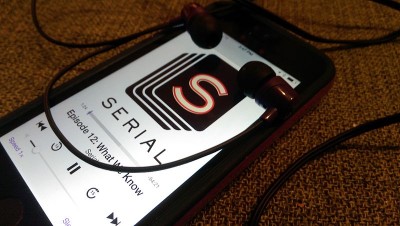'Alternative suspects,' unreliable evidence support new trial for Adnan Syed of 'Serial' podcast fame, prosecutors say

Photo by Casey Fiesler/Flickr.
Baltimore prosecutors are asking a judge to vacate the murder conviction of Adnan Syed, whose case was featured on the Serial podcast.
In a Sept. 15 motion, prosecutors said they no longer have confidence in Syed’s February 2000 conviction for killing his former girlfriend, 18-year-old Hae Min Lee. Syed was 17 at the time that Lee was murdered in January 1999.
In support of their request, prosecutors cited two “alternative suspects” who were known at the time of the investigation and expert opinion about the unreliability of cellphone evidence used at trial.
But new DNA testing ordered in March was not helpful because it did not produce useful results.
“At a minimum,” Syed should get a new trial, prosecutors said. The investigation is ongoing, and the prosecution will decide whether it will move to drop the charges based on the results. Syed should be released on his own recognizance while the investigation continues, prosecutors said.
According to the prosecution motion:
• One of the alternative suspects had said he would kill Lee and make her “disappear,” according to a document found in the prosecution’s trial file. The defense file did not have the document. Also undisclosed to the defense was a separate document in which a person relayed information about the same suspect that could be viewed as a motive for the murder.
• Lee’s car was found behind the home of a family member of one of the alternative suspects. That information was not available to the defense at trial.
• One of the alternative suspects attacked a woman in her vehicle “without provocation or excuse.” He was convicted of the offense. The information was not available at the time of trial.
• One of the alternative suspects had engaged in “multiple instances of rape and sexual assault of compromised or vulnerable victims in a systematic, deliberate and premeditated way.” The suspect was convicted of this offense. The information was not available at the time of trial.
• One of the suspects was improperly cleared after an initial polygraph test indicated deception regarding his involvement in the crime. The suspect said he was distracted, and he was allowed to take a second test another day. An expert consulted by prosecutors said results on the first test would likely have been inconclusive if the suspect was distracted, rather than indicating deception. The second test, known as a “peak of tension” test, should not have been used to disconfirm the first test, the expert said.
• One of the detectives in the murder investigation was accused in another case of fabricating evidence and failing to disclose exculpatory and impeachment evidence.
• The main witness in the case against Syed, Jay Wilds, had made inconsistent statements to police and the media. Wilds had testified that Syed told him that he was going to kill Lee, admitted that he strangled her, and showed him Lee’s body in the trunk of her car. Wilds said he helped Syed bury the body in a park. He said Syed gave him his cellphone on the day of the murder. Wilds has pleaded guilty to being an accessory after the fact. One example of an inconsistency is that Wilds gave police two different accounts about where he saw the body and gave a third account to the media.
• The prosecution relied on billing location information provided by AT&T to place Syed at the park location. The records, however, were not reliable evidence for location.
Among the publications covering the prosecution motion are the Baltimore Sun (via How Appealing), the Guardian, the Washington Post and the New York Times.
See also:
ABAJournal.com: “Judge orders new DNA tests in Adnan Syed murder case featured on ‘Serial’ podcast”
ABAJournal.com: “Top state court reinstates murder conviction of Adnan Syed; his case was chronicled in ‘Serial’ podcast”



